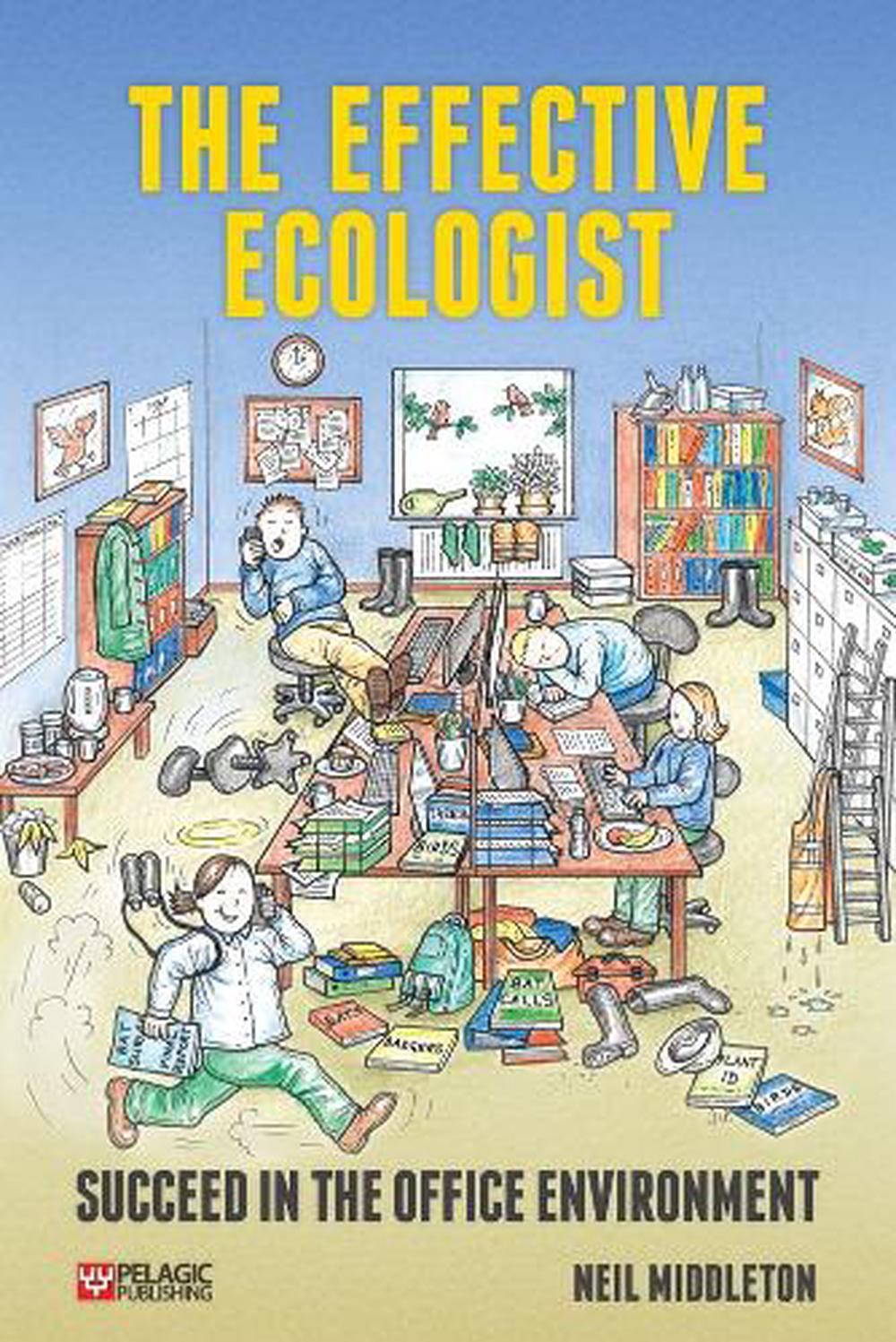
The Effective Ecologist
succeed in the office environment
- Paperback
222 pages
- Release Date
1 April 2016
Summary
The Effective Ecologist covers the stuff that no-one told you about at university – how to develop your office-related and business skills to succeed in your career as a professional ecologist.
This book shows you how to be more effective in your role, providing you with the skills and effective behaviours within the workplace that will enable your development as an ecologist.
It explains what it means to be effective in the workplace and describes positive behaviours …
Book Details
| ISBN-13: | 9781784270834 |
|---|---|
| ISBN-10: | 1784270830 |
| Author: | Neil Middleton, Joan Punteney |
| Publisher: | Pelagic Publishing |
| Imprint: | Pelagic Publishing |
| Format: | Paperback |
| Number of Pages: | 222 |
| Release Date: | 1 April 2016 |
| Weight: | 350g |
| Dimensions: | 234mm x 156mm |
What They're Saying
Critics Review
Your book is having a profound impact on my professionalism and business attitude.
The author makes use of his extensive experience in many aspects of business and ecology to set out methods for practising ecologists to provide the relevant material they have been commissioned to supply.
Using practical, genuine examples he details the step-by-step process of getting together a group of ecologists and turning them into an effective team in the office and enabling them to produce and deliver the required report to their employer. This is certainly not easy for the inexperienced, but I feel confident that following Mr Middleton’s advice will ensure many pitfalls are avoided. He sets great store and emphasis on inter-personal relationships and in combining these with the increasingly sophisticated technology now available to many but perhaps understood by few. He deals very well with the intricate dovetailing of an individual into a team, the careful planning and delegation of work responsibilities within a time frame and targets, so that there is little room for misunderstanding. There is a valuable section on how to set up your workspace to maximise efficiency yet remain available to those needing to consult you, both the ones responsible to you and those you are responsible to.
I was most impressed by the emphasis on inter-personal relationships and communication between people as being essential for success. Much of this is extremely straightforward and often neglected. Perhaps the natural human skills of communication have been allowed to fall out of use when technology replaces face to face contact, extremely important when dealing with clients who are unfamiliar with modern ecological jargon. Mr Middleton with great humour indicates that modern etiquette, common sense and pre-planning will avoid pitfalls and counter-productive attitudes and actions. Perhaps this is the 21st Century update of the Armed Services Perfect Planning prevents Poor Performance.
The text is carefully set out to make it easy to follow, the illustrations by Joan Punteney are both humorous and delightfully detailed, and there is a short but valuable Glossary. I commend it to all ecologists seeking effective communication with everyone else. Wildlife will also benefit greatly.
– Philip Jackson * BTO News *Your book is having a profound impact on my professionalism and business attitude.
– David Darrell-Lambert, Director, Bird Brain UK LimitedIt all comes together to make what should be a standard text for budding (as well as those in full leaf) ecologists.
– Reuben Singleton, Director, Tweed Ecology LtdAbout The Author
Neil Middleton
Neil Middleton is a licensed bat worker and trainer, with 20 years experience, having carried out most of his bat related work within the UK and Europe (Ireland, Cyprus, France, Spain and Hungary). He is the managing director of Echoes Ecology Ltd , an ecological consultancy he established in Scotland during 2006. Neil has been involved with many bat related projects to date, including the Bats & The Millennium Link (BaTML) project which he set up to study the use of canal corridors by bats in Scotland . Neil is an accomplished trainer across a wide range of bat related subjects, having developed and delivered well over a 100 events to date. Neil first came across his co-authors, Andrew and Keith, whilst they all attended a bat course in Somerset during 2004, an event that not only inspired all three of them, but also was the beginning of a long friendship as they explored many bat related subjects together, including the material for this book.
Returns
This item is eligible for free returns within 30 days of delivery. See our returns policy for further details.




